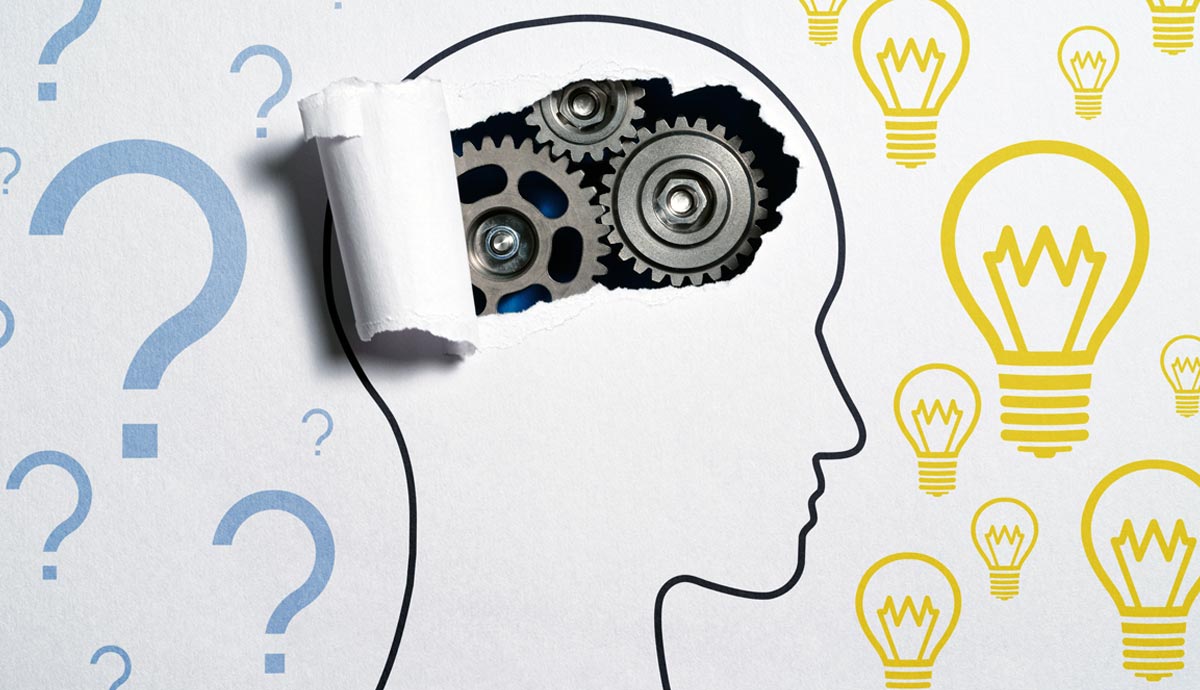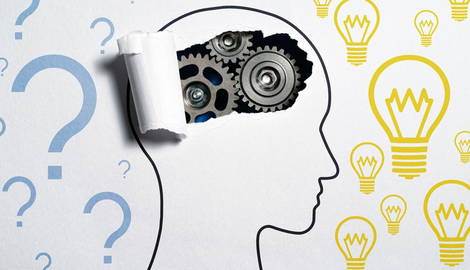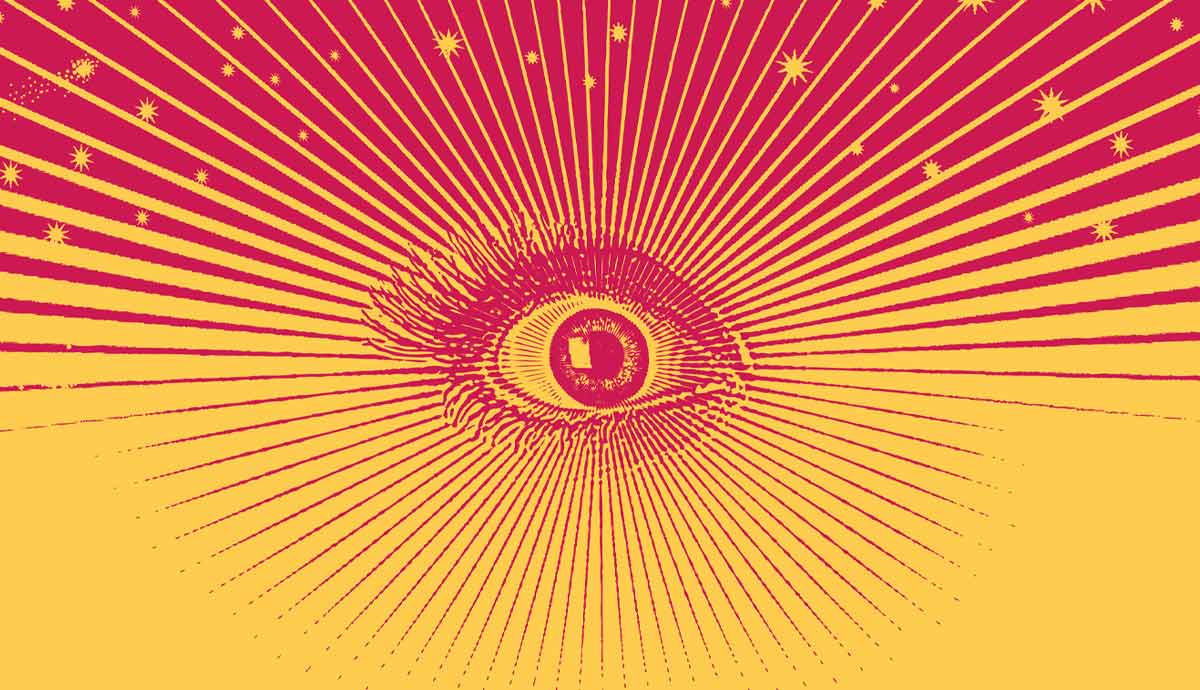
What does it mean to be a “critical thinker”? Because this designation can carry negative connotations, perhaps the better label is “logical reasoner.” However, considering the widespread term “critical thinker” is, we can consider the two synonymous. Thinking is a mental process, but thinking well as a critical thinker is not easy. As we will see, many obstacles can get in the way, external or internal, conscious or subconscious.
What Is Critical Thinking?

By “critical,” we mean “dissecting for analysis,” not the negative sense of “critique.” Critical thinkers dive into the profundities of whatever is under scrutiny, intending to achieve better understanding.
Despite the plethora of obstacles, the good news is that because we are aware of them, critical thinking is already at work. Moreover, certain traits we can also agree on that are fundamental for truly being a critical thinker. Some of these key characteristics of a critical thinking mindset include being open-minded and curious, having a comfortable awareness of our fallibility, and working as best we can toward impartiality.
Evaluating Information

Presenting an argument for something—and by this, I don’t mean “fight,” but rather a case for something—is hard work. It is much easier to find the flaws in another argument rather than present our own infallible ones. Much of the time, we find ourselves having information presented to us, with others trying to persuade us on something, and as critical thinkers, the first question we should ask is: “Says who?”
While gauging the authority of that “who” presumably employs common sense, that intuition is unfortunately sometimes either absent or skewed, and we fall prey to simple, quick answers rather than well-thought-out ones. However, we should all know what makes for a “good source”: one that checks as many of the required boxes within that definition as possible.
Here are some of the most important boxes in the form of questions we must ask:
1) Is the source an expert on the topic they are speaking about; what general qualifications make them credible?
2) Does that fall within their specific field of specialty, and have they been there for enough time?
3) Is there any possibility for bias and motivated reasoning that would lower confidence in their opinion?
4) Is the source trustworthy; have they ever lied in the past?
5) Are the source’s views consistent with what other relevantly authoritative sources say about the same topic?
6) Is the evidence presented good; can we verify it?
We must look at the data and not rely on the quick and easy, such as anecdotes from close friends and family. We must follow the evidence.
Considering Language

Language can be used in very powerful ways, for both good and bad. It can be used very clearly to provide meaning, but it can also be used very unclearly to create misunderstanding. For example, language can be vague and/or ambiguous, leaving wide open the door to error. With vagueness, there is a fuzziness of meaning, causing one to ask: What do you mean? Precision helps eliminate the problem of vagueness.
With ambiguity, there is more than one meaning possible, asking one to ask: which do you mean? The context is needed to eradicate that lack of clarity with ambiguity. Sometimes people equivocate with terms by changing definitions over the course of a discussion. Sometimes people speak with loaded terms and phrases, forcing the listener to accept certain presumptions contained in the statements or provoke emotionally clouded judgments.
Establishing clear definitions is essential for critical thinking, as without that, discussions can go around in circles endlessly. This is a primary reason why the abortion debate, for instance, is so polemic because it hinges on different definitions of “life.” The burden of proof always resides on the person, or group, presenting the case for something, so the audience of that person, or group, must always demand good evidence.
Avoiding Obstacles: Cognitive Biases

Unfortunately, there are many obstacles to clear, rational thinking. However, the fact that we can spot them means not all is lost; critical thinking is very much a skill that we can all improve throughout our lives. The more we practice, the better we get. The more we keep potential obstacles at the forefront for preparation, the better we get at warding them off. We need to remember to slow down and save enough time to think, well.
These obstacles can be cognitive, and they can be philosophical. By cognitive what is meant is psychological; certain tendencies that are at times a part of the human condition. And by philosophical what is meant is regarding errors in argumentation, such as logical fallacies.
Some of the most potent examples of cognitive biases are motivated reasoning, myside bias/tribalism, confirmation bias, cognitive dissonance, group conformity, the availability heuristic, the bias of anchoring, Dunning-Kruger, and hindsight. With the myside bias, we become tribal and assume the beliefs of those agreed upon within our “tribe” (or political party, sports team, etc.). With confirmation bias, we actively search for information that confirms our biases and avoid information, whether consciously or not, information that goes against them.
The Dunning-Kruger effect is when we overestimate how much we know, and underestimate how much we do not know. These are just some examples, there are too many for a short article to cite. But one basic test we can all employ that captures much of the avoidance of these is to simply ask ourselves the following when contemplating an argument either presented to us or by us: “how much am I willing to bet on this position?”
Avoiding Obstacles: Logical Fallacies

The full list of logical fallacies is also quite long—it dates back to the ancient period, and it keeps growing. A fallacy is an error in argumentation that is so specific and pervasive that it gets its own name. Such common examples include many forms of distraction such as the straw person or red herring. They also include many forms of oversimplifications, such as hasty generalizations, false dichotomies, suppressed evidence, false causes, slippery slopes, and weak analogies.
Hasty generalizations, for instance, are founded upon an unrepresentative sample that lead to errors such as with stereotypes. There are many examples of the introduction of some form of irrelevance, such as ad hominem attacks, poisoning the well, and poor or unknowable statistics. Ad hominem, or attacks on the person, for instance, can take many forms to try to discredit a person and therefore their argument.
Arguments may make fallacious mistakes by missing the point or presenting appeals to ignorance and false authorities. They may also appeal to our emotions in multiple ways that can cloud our capacity for rational, reasonable thought.
Understanding Arguments

In philosophy, we define an “argument” as a position on an issue that always contains a conclusion supported by at least one reason. If either part is missing, it is not an argument. An argument tries to persuade a position on an issue. As already noted, arguments are easier to dissect than to create. But critical reasoners are aware of this.
Critical reasoners also keep at the forefront the need to keep an open mind: when trying to prove ourselves right, we must also try to prove ourselves wrong. We must always consider the possibility that we could be wrong and always consider the other side when debating issues, as well as any evidence that may come to light to force us to either adjust our views accordingly or drop them entirely (in other words, we must actively work to avoid falling prey to the confirmation bias, for instance).
What is of utmost importance for the critical thinker is not to be right but to work towards rightness. And by “rightness,” I mean both ethically, in terms of being responsible and reasonable, and correctness, in terms of truthfulness. We must keep in mind the obligation to search for the truth of matters and not aim toward building our egos. We should not be afraid to be wrong, and being courageous means admitting we are wrong—which every one of us is from time to time.
We have a responsibility to each other to prevent misinformation and to educate ourselves. This means not just general educational development but also checking ourselves frequently; after all, if we do not stop to think about where our beliefs, values, etc. come from, we cannot really call them our own.
Critical Thinking Is Not “Us vs Them”

The other team is always the one who committed the foul. The referee is always against our team. The other political party always has it wrong and mine always has it right. My information is the best because I found it. We must not let ourselves get trapped in this kind of thinking that results in the inverted worldview that causes some to fall into the abyss of uncritical thinking.
This is poignantly the case with conspiracy theories. Usually, the more commonly reported the information across the spectrum of sources, the more likely it is to be true, yet some fall deep into assuming the exact opposite: that the true information is that which is most occult, hidden—this is the complete inverse of the reality, of the truth of the matter, as the more occult, the less likely it is to be true. The consistency (aforementioned as so important in the evaluation of information) of experts is precisely hidden as per the definition of a “conspiracy theory.”
Sadly, we seem to live from time to time in epidemics of such bad thinking. There are many reasons for this, some of which we have seen in the examples of obstacles to critical thinking. Or, in the case of conspiracy theories, this can be a result of how that information one has to “dig for” starts to feel like a discovered treasure. It may be highly interesting, and it makes the discoverer feel as though they have a special knowledge that others do not. But again, this is just getting stuck in a hole of inverted reality, and it represents the precise opposite of critical thinking.
How to Practice Better Thinking Habits

The algorithmic Internet does not make this any easier for us all, but we all owe it to ourselves and everyone around us to strive to be better critical thinkers and practice the skill set that this employs as much as possible. Critical thinking means being aware of all this and being aware of the areas where we lack knowledge. We all lack some knowledge. Nobody knows everything.
Knowing which are the good sources to fill in the gaps where we lack knowledge is also of utmost importance for critical thinking. Look at all the evidence possible, employing a healthy dose of skepticism—do not go overboard.
Critical thinking does not require being intelligent; it simply requires practicing the right mindset, something all of us can achieve if we are willing and motivated to do so. It is simply a matter of cultivating the habits of a critical thinker. We must adjust our beliefs to the total evidence. The goal is to reason well by focusing on how we think over what we think.










